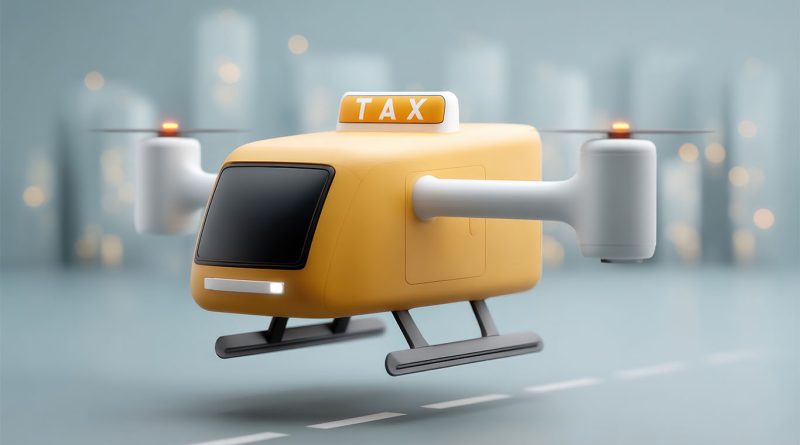Vertical Aerospace Unveils Long-Range Hybrid Air Taxi for 2028 Launch
Subscribe to our free newsletter today to keep up to date with the latest transportation and logistics news.
Vertical Aerospace, the UK-based eVTOL manufacturer, has announced a hybrid-electric version of its VX4 aircraft, extending its range from 100 to 1,000 miles. The move marks a significant pivot away from short-haul electric models and positions the company to tap into broader commercial and defense markets.
The upgrade is not just about improving the aircraft. It addresses critical shortcomings in current electric vertical takeoff and landing systems. Urban air mobility remains limited by sparse charging infrastructure and narrow operating ranges. By adding hybrid propulsion, Vertical aims to offer an aircraft capable of regional reach without compromising on environmental goals.
Opening the market to heavier payloads and new sectors
With a payload capacity of up to 1,100 kilograms, the hybrid VX4 enters a new operational category. Vertical Aerospace is targeting applications in defense and logistics where range and payload are non-negotiable.
In defense, the hybrid model enables agile aerial resupply, tactical transport, and medical missions in areas lacking fixed infrastructure. For logistics, it offers regional delivery capabilities without reliance on runways or centralized depots. These use cases require neither new infrastructure nor complete changes to supply chains, giving Vertical a quicker path to adoption. Expanding into these sectors also supports production scale, making the aircraft more cost-competitive and reducing unit costs for all buyers.
Honeywell partnership drives certification and credibility
To bring the hybrid VX4 to market, Vertical has expanded its collaboration with Honeywell. The long-time partner is supplying compact fly-by-wire controls and other flight systems designed to meet safety requirements under the UK Civil Aviation Authority and the European Union Aviation Safety Agency.
Flight tests are planned for 2026, with certification expected by 2028. The timeline reflects the complexity of certifying hybrid systems, especially in a category historically built around electric-only aircraft.
Competitive context favors Vertical’s hybrid pivot
The eVTOL industry has largely focused on short-haul, electric-only models. Firms such as Joby Aviation and Archer Aviation continue to test aircraft suited for brief urban hops. Vertical’s hybrid model takes a different path, targeting underdeveloped regional air corridors.
By focusing on range and payload, the company is entering less crowded segments of the market. Urban air mobility remains years away from full-scale operation due to airspace regulation and community resistance. In contrast, the hybrid VX4 can be deployed sooner in logistics and defense, where commercial and operational barriers are fewer.
The pivot also reflects growing recognition that first-generation electric air taxis may not scale fast enough without transitional technologies like hybrid propulsion.
Hybrid-electric systems may not represent the final destination for sustainable aviation, but they offer a practical step toward it. Hydrogen fuel and high-capacity batteries are still in early stages of commercial readiness. Until they mature, hybrid models like the VX4 allow operators to expand services without waiting for next-generation infrastructure. From airfields to supply chains, this solution fits into existing ecosystems. It also gives regulators a lower-risk entry point into certifying vertical aviation at scale.
